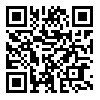BibTeX | RIS | EndNote | Medlars | ProCite | Reference Manager | RefWorks
Send citation to:
URL: http://ehj.ssu.ac.ir/article-1-50-en.html
Introduction: The diseases and problems due to ageing can affect the quality of life (QoL) in the elderly. The aim of this study was to compare the effects of self-care program education run by health volunteers and healthcare staff on the QoL in the elderly.
Methods: In this experimental, field trial study, 150 elderly people living in Mashhad were enrolled by multistage sampling in 2014. The participants were randomly assigned to three groups of 50 individuals in each; group A was educated by healthcare staff at healthcare centers, group B by health volunteers at the elderly's homes, and group C was control. The intervention groups (A and B) attended two independent self-care education programs for one month. The data were gathered by the SF-36 questionnaire administered before and one month after the completion of the program. Data analysis was done by descriptive statistics [mean (standard deviation)] and analytical statistics (independent samples t-test and Kruskal-Wallis H-test).
Results: QoL score of the groups A, B, and C was derived 45.44 ± 23.87, 45.36 ± 23.81, and 45.38 ± 23.83 before the intervention and 48.79 ± 22.09, 63.15 ± 19.03, and 46.08 ± 22.67 after the intervention, respectively. The QoL score of the group B was significantly higher than the other two groups (p < 0.05) after the intervention. Besides that, after the intervention, the mean scores of QoL and physical function, role-physical, role-emotional, social function, bodily pain, and general health increased significantly more markedly in the group B compared with the other two groups.
Conclusion: Self-care education by the health volunteers was much more effective than that by healthcare staff. In addition, implementing the self-care education program contributed to improving QoL and therefore life satisfaction in the elderly.
Received: 2016/02/7 | Accepted: 2016/04/18 | Published: 2016/06/29
| Rights and permissions | |
 |
This work is licensed under a Creative Commons Attribution-NonCommercial 4.0 International License. |






